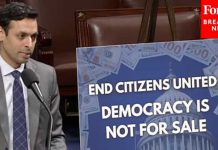
A 13-year-old shot in broad daylight outside a Queens Dunkin’ Donuts reignites deep concerns about urban crime, youth safety, and the erosion of public trust in local security—while exposing the failures of past city policies to protect families and uphold American values.
Story Snapshot
- A 13-year-old boy was critically injured after being shot in the head outside a Dunkin’ Donuts in Cambria Heights, Queens, during morning hours.
- No suspects have been arrested; police have not disclosed the motive or circumstances leading up to the shooting.
- The incident spotlights ongoing worries over youth violence and public safety in residential neighborhoods once considered safe.
- Community anxiety and political pressure are mounting for effective action and accountability in the wake of repeated failures to secure New York’s streets.
Broad-Daylight Shooting in Family-Focused Neighborhood Raises Alarm
On Monday morning, a 13-year-old boy was shot in the head outside a Dunkin’ Donuts at a strip mall on Linden Boulevard and Springfield Boulevard in Cambria Heights, Queens. The attack occurred around 8:20 a.m., a time when families and students frequent the area. The victim was rushed to Northwell-Cohen Children’s Medical Center in critical condition. Police have not provided information about the motive or suspects, leaving the community shaken and demanding answers about public safety and youth protection.
NYC boy, 13, clinging to life after being shot in head outside Queens Dunkin Donuts https://t.co/rga21tiKfI
— Patti King (@PattiKi2959) September 22, 2025
The location—a popular chain store in a residential neighborhood not typically associated with gun violence—has heightened shock and outrage. This incident stands out not just for the victim’s age and the public setting, but also for its timing: broad daylight in a strip mall frequented by families. Residents now question how violence has reached even these supposedly safe spaces, fueling frustration over what many see as ineffective city leadership and policing strategies in recent years.
Recurring Urban Crime and Policy Failures Undermine Community Trust
Queens, like other parts of New York City, has seen fluctuating rates of gun violence, but recent years have brought increased concern over youth involvement, both as victims and perpetrators. Previous incidents involving minors have already heightened law enforcement and public sensitivity. The lack of immediate answers in this case—no suspects, no motive—reflects broader issues: a gap between community expectations and the ability of city leaders to deliver safety. This gap has grown wider due to policies critics say prioritize political correctness and bureaucracy over practical solutions that protect families and uphold constitutional rights.
The immediate aftermath has resulted in heightened police presence and disruption to local businesses and schools. Economic uncertainty, social anxiety, and potential declines in business activity are real consequences. In the longer term, incidents like this may reignite policy debates over gun control, policing, and the role of government in ensuring safety—debates that have too often devolved into partisan gridlock rather than producing effective action rooted in common-sense values.
Stakeholder Responses and Community Impact
The NYPD continues to lead the investigation, with detectives securing the scene and collecting evidence. The victim’s family, local residents, and business owners are demanding justice and reassurance. Elected officials may become involved as public pressure grows. Meanwhile, the media’s role in shaping public perception is crucial—balancing the need to inform with the risk of fueling further anxiety. Community leaders are split: some call for increased policing and tougher sentencing, while others advocate for more community-based prevention and outreach programs. However, repeated failures to address the root causes of youth violence and protect law-abiding citizens foster cynicism and erode trust in institutions.
Experts on urban crime point to systemic issues: easy access to firearms, insufficient youth outreach, and the unintended consequences of policies that have deprioritized law enforcement in favor of social experiments. Criminologists note that such shootings in residential neighborhoods are rare but deeply destabilizing, especially when political leadership appears more focused on ideology than results. Until city officials and policymakers confront these realities without deflection or denial, families will continue to feel abandoned, and the American promise of safe communities will remain out of reach.
Ongoing Investigation, Mounting Pressure for Accountability
As of the latest updates, the boy remains in critical condition, with no suspects in custody and no new details on the motive. The investigation is ongoing, but the lack of immediate progress only deepens frustration among families who see this as yet another example of failed leadership and misplaced priorities. Calls for meaningful reform—rooted in constitutional principles, individual responsibility, and law and order—are growing louder, with many demanding that city and state leaders finally deliver on their most basic duty: protecting the innocent and restoring public trust.




